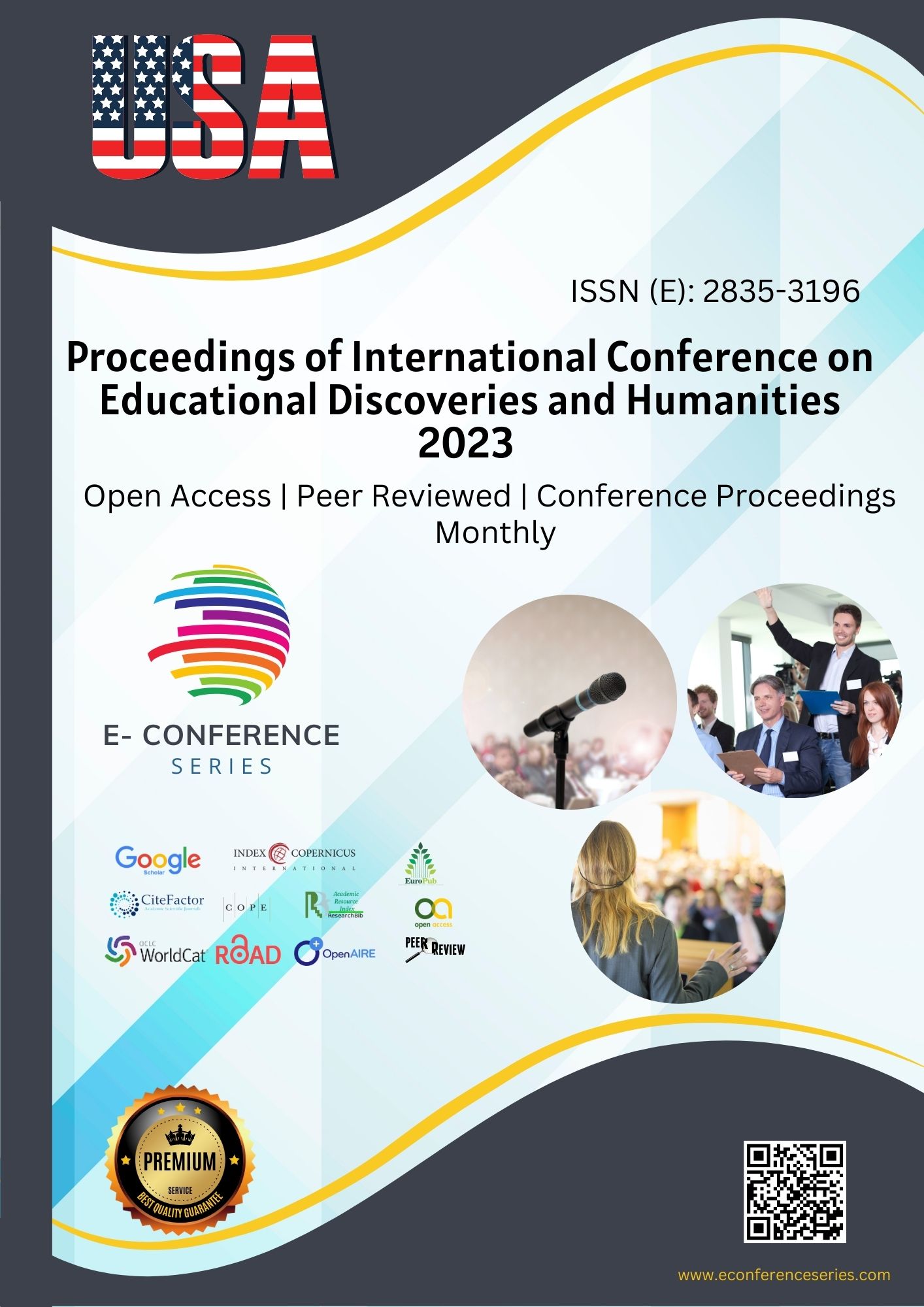INTERPRETING AUXILIARY VERBS IN ENGLISH AND UZBEK
Abstract
No language is relevant to society and cannot develop on its own outside of society. Language is, first of all, a means of interaction between society and people, so society is a direct link between people and the formation of language vocabulary. It is important to remember that language itself is important because of the laws of its internal system of formation. Depending on the situation, a single idea in any developed language will be interpreted differently. Regardless of style, stylistic color, or situation, there are neutral words that are used in communication only for certain situations as the core of the language.
References
Zuparova, S., Shegay, A., & Orazova, F. (2020). Approaches to Learning English as the Source of All. European Journal of Research and Reflection in Educational Sciences, 8(5).
Zuparova, S., Shegay, A. (2021). Methods of Teaching Foreign Languages. Eastern European Scientific Journal, 1(7), 141-143.
Djurayeva, Y., Ayatov, R., & Shegay, A. (2020). Current Problems and Resolutions of Teaching English Grammar. Academic research in educational sciences, 1(3).
Ўлжаев, Ў. Б., & Бердиев, Ш. Х. (2021). Углерод нанотрубкасида олтин кластери ва углеводородли молекулаларнинг ўзаро таъсирини моделлаштириш. Academic Research in Educational Sciences, 2(5), 1189-1195.
Tursunov, I. G., Berdiyev, S. X., & Usmonov, M. M. (2021). Fizikani o’qitishda pedagogik ta’lim klasteri metodidan foydalanishga doir tavsiyalar. Academic research in educational sciences, 2(5), 1129-1136.
Djurayeva, Y., Ayatov, R., & Shegay, A. (2020). Current Problems and Resolutions of Teaching English Grammar. Academic research in educational sciences, 1(3).
Downloads
Published
Issue
Section
License

This work is licensed under a Creative Commons Attribution-NonCommercial 4.0 International License.








